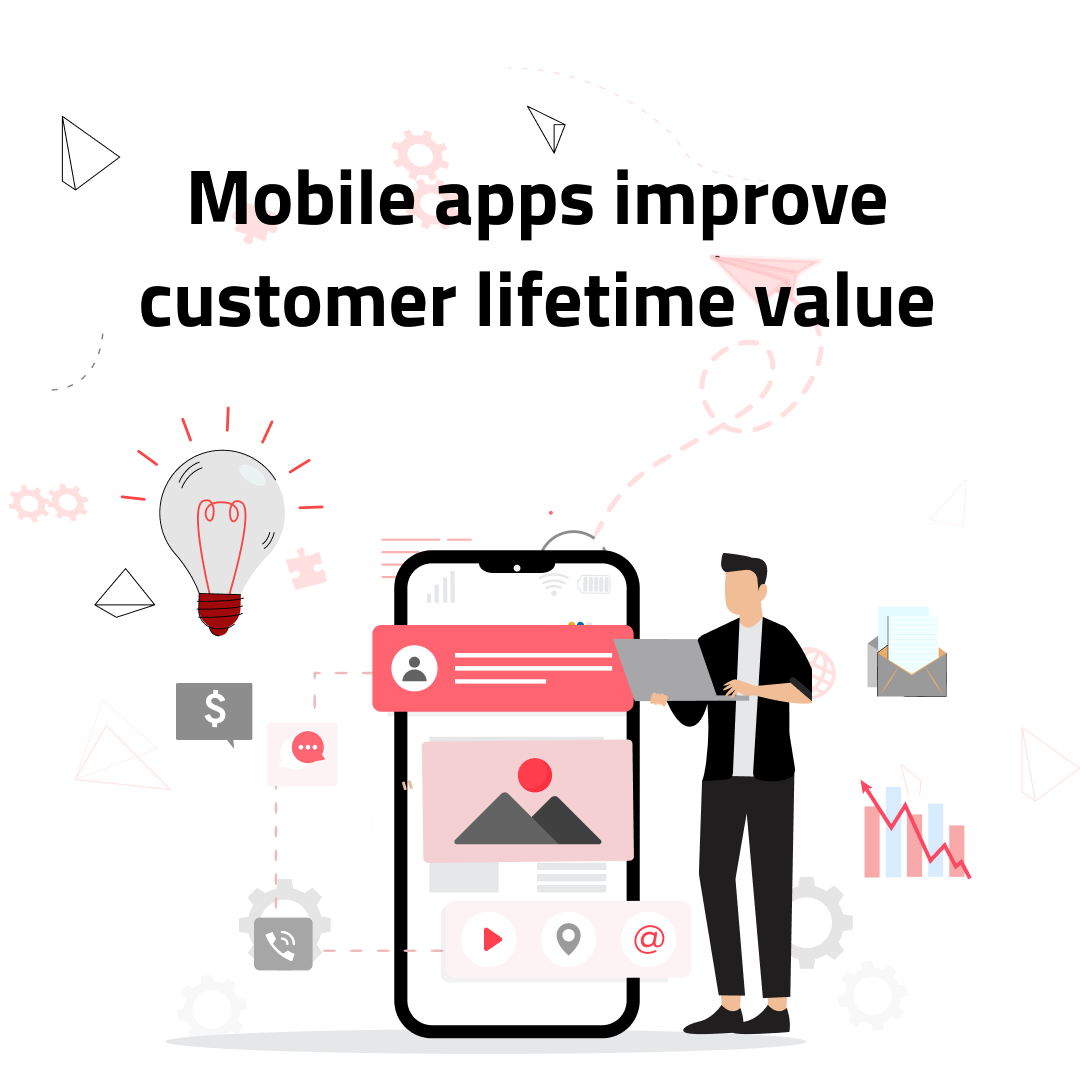
One of the most effective tools businesses are leveraging to boost customer lifetime value (CLV) is mobile application development. Mobile apps allow brands to create personalized, seamless, and engaging experiences that keep users coming back, ultimately driving higher revenue over time.
In this article, we’ll explore how mobile apps directly impact CLV and why investing in app development is a smart long-term strategy.
What is Customer Lifetime Value (CLV)?
Customer Lifetime Value (CLV) is the total revenue a business can expect from a single customer throughout their entire collaboration with the brand.
A higher CLV means:
How Mobile Apps Drive Higher CLV
1. Personalized Experiences
Mobile apps enable businesses to use customer data (like browsing history, preferences, purchase behavior) to create personalized recommendations.
For example, for E-commerce the personalized push notifications can increase repeat purchases
As a result, personalization increases customer satisfaction, leading to longer retention and higher spending.
2. Seamless Loyalty Programs
Mobile apps make it easier to integrate loyalty points and rewards. This results in making customers want to return, which boosts frequency and overall CLV.
3. Push Notifications & Direct Communication
Unlike email or social media, apps provide a direct communication channel.
Result: Brands stay top-of-mind, increasing purchase frequency and retention.
4. Convenience & Faster Transactions
A mobile app reduces friction in the customer journey.
Result: Convenience builds trust and encourages repeat transactions, raising CLV.
5. Ongoing Engagement Through Value-Added Features
Beyond sales, apps can provide features that keep users engaged daily:
Result: The more touchpoints a customer has with your brand, the longer they stay loyal.
Conclusion:
Customer Lifetime Value (CLV) is one of the most important metrics for sustainable business growth. Mobile application development helps businesses:
A mobile app is not just a digital product, it’s a customer retention and revenue growth engine.
Pro Tip: Don’t just build an app, build one that’s personalized, convenient, and engaging to maximize CLV.
Have an app idea and want to get started? Contact us now!
